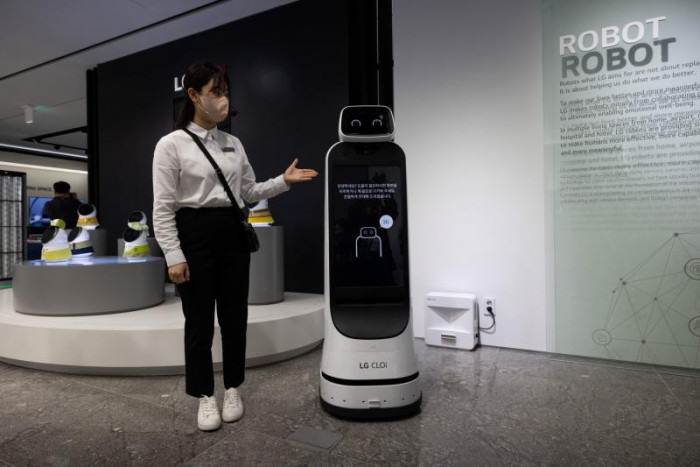In the next 20 years, around 4 million jobs, equivalent to 14% of the workforce in South Korea, may be substituted by artificial intelligence (AI), as per a study conducted by the central bank, contributing to the growing concerns regarding the imminent disruption in the global labor market.
The research team led by Oh Sam-il at the Bank of Korea (BOK) suggests that individuals with higher incomes and superior educational backgrounds are at a higher risk of being replaced by AI, particularly in tasks involving analysis and cognitive functions. Conversely, occupations related to spirituality, food services, training, and music are deemed less susceptible, while professions like chemistry, medicine, law, accounting, and property management face higher vulnerability.
South Korea, striving to mitigate the impacts of its aging population, currently boasts one of the highest rates of robot adoption globally. Despite this, the country ranks lower in AI utilization compared to other nations.
The Han study aligns with the emerging notion that AI, besides enhancing productivity, could disrupt white-collar jobs on a global scale.
A report by Goldman Sachs highlights that generative AI models such as OpenAI’s ChatGPT could potentially impact 300 million jobs worldwide. Nevertheless, this technology is projected to boost global economic output by 7% over a decade. Similarly, a McKinsey report predicts significant disruptions for knowledge workers but also foresees increased productivity.
The BOK analysis indicates that AI will drive the demand for STEM fields (science, technology, engineering, and mathematics) and emphasize the importance of soft skills like communication and teamwork. This research adopts methodologies akin to those utilized by scholar Michael Webb at Stanford University.






